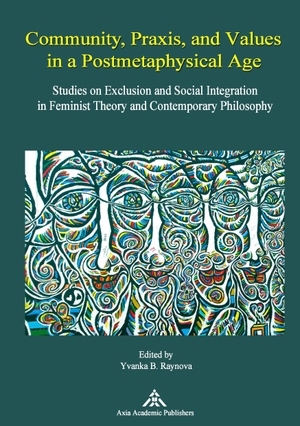Für statistische Zwecke und um bestmögliche Funktionalität zu bieten, speichert diese Website Cookies auf Ihrem Gerät. Das Speichern von Cookies kann in den Browser-Einstellungen deaktiviert werden. Wenn Sie die Website weiter nutzen, stimmen Sie der Verwendung von Cookies zu.
Cookie akzeptieren
Community, Praxis, and Values in a Postmetaphysical Age
- Axia Academic Publishers
- 2015
- Taschenbuch
- 356 Seiten
- ISBN 9783903068155
The following volume is published on the occasion of the 15th anniversary of the establishment of the Institute for Axiological Research in Vienna ¿ the first European Institute for the advanced philosophical and interdisciplinary study of values ¿ and is divided in two parts. The first one treats specific problems of women's struggle for rights, freedoms, and recognition, and moves successively to thematically broader methodological and hermeneutical approaches of the phenomena of exclusion and the possibilities of social integration, which are discussed in the second part. Although the defended positions of the essays in the present volume are different from those of Habermas, they should be
Mehr
Weniger
zzgl. Versand
in Kürze